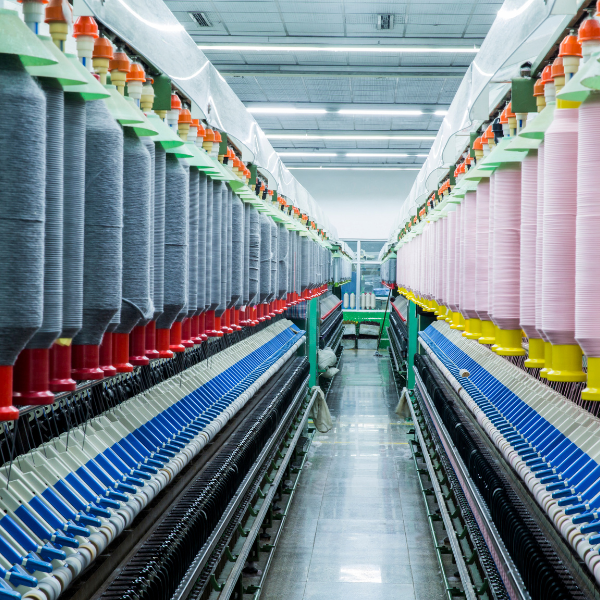The Importance of Industrial Vacuum Cleaners in Textile Production
In the textile production sector, the efficiency and quality of the production process are crucial to ensuring high-quality, market-competitive final products. One often overlooked but critically important aspect is the use of industrial vacuum cleaners. These devices play an essential role in maintaining clean and safe work environments, thereby enhancing not only the quality of the final product but also the working conditions for operators.
Industrial Vacuum Cleaners: A Fundamental Ally
FEVI Industrial vacuum cleaners are indispensable tools for ensuring cleanliness and safety in textile factories. They are designed to effectively remove dust, scraps, and other residues generated during the various stages of textile production. Their high-efficiency suction capacity helps keep the work environment free from contaminants, reducing the risk of occupational diseases related to the inhalation of fine dust.
Vacuum Cleaners for Fine Dust: Protection and Cleanliness
In textile processing, the production of fine dust is inevitable. These particles, if not properly managed, can cause respiratory problems for operators and compromise the quality of the fabric. Fevi Fine dust vacuum cleaners are specifically designed to capture these microscopic particles, ensuring a healthy work environment and reducing wear on equipment. The adoption of these vacuum cleaners significantly contributes to complying with workplace safety regulations and improving overall production efficiency.
Industrial Vacuum Cleaners for Scraps: Efficiency and Sustainability
During the cutting and processing stages of textiles, numerous scraps and residues are generated. Industrial vacuum cleaners for scraps are essential for collecting and managing these materials. These devices help keep work areas clean, reduce the risk of fires, and increase operational efficiency. Moreover, the differentiated collection of scraps allows for their recycling, contributing to the environmental sustainability of textile production.
Vacuum Cleaners for Scraps in Textile and Packaging
FEVI models are scrap vacuum cleaners designed for the professional suction of bulky and lightweight materials such as paper cuttings, fabrics, and various types of plastic materials. In many companies within the food or pharmaceutical industrial sector, there are departments dedicated to the packaging and wrapping of their products. FEVI models have been specifically designed for the industrial suction of scraps from these operations, typically involving automatic machines. The importance of vacuuming scraps ensures the continuous operation of the packaging process by preventing accumulated material from jamming the automatic machinery.
Similarly, companies involved in fabric processing and cutting produce bulky scraps that could slow down production processes. The very lightweight nature of the material to be vacuumed necessitates the use of specially designed industrial vacuum cleaners.
Vacuum Cleaners for Oils and Liquids: Impeccable Cleanliness
Another critical aspect of textile production is the management of oils and other liquids used in processing. Oil vacuum cleaners are designed to effectively remove these fluids, preventing leaks and contaminations that could damage machinery and finished products. Their ability to vacuum liquids and solids simultaneously makes these tools extremely versatile and indispensable for ensuring a safe and clean work environment.
Conclusion





